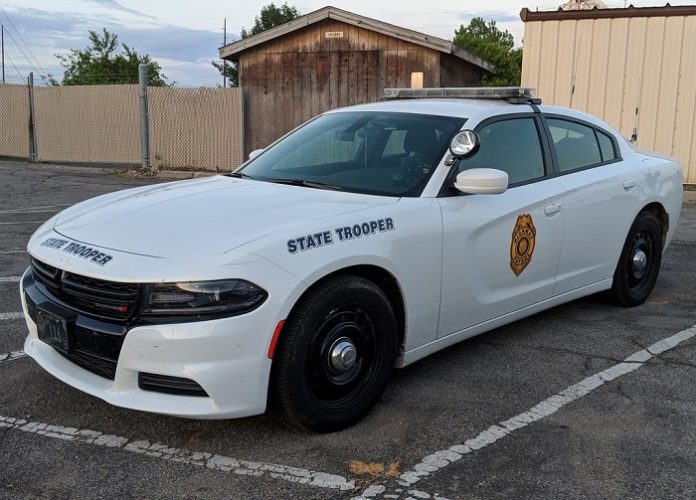A federal judge has issued an injunction bringing the Kansas Highway Patrol under court oversight after finding that a technique used by troopers to detain drivers and sniff out drugs violated the Fourth Amendment rights of motorists.
U.S. District Judge Kathryn Vratil on Monday handed down an injunction that imposes a number of requirements on the Highway Patrol after concluding that the “Kansas two step” violated the constitutional rights of motorists.
The injunction puts the Highway Patrol under court supervision for at least two years and sets out requirements for documenting investigative traffic stops and detaining drivers and requires yearly training for troopers.
“The Kansas Highway Patrol is not above the law,” said Sharon Brett, legal counsel for the American Civil Liberties Union of Kansas.
“While KHP made various attempts to side-step accountability for its practices and put off this injunction, the constitution has prevailed,” Brett said in a statement.
The Highway Patrol declined to comment.
Civil rights advocates said troopers would use the two-step tactic to break off an initial traffic stop and attempt to reengage the driver in what would then be considered a consensual encounter and give them more time to search for drugs.
After issuing a ticket or warning and telling the driver to have a safe trip, the trooper would turn their body, take two steps toward the patrol car but return to the driver’s window to ask the driver to answer a few more questions.
Vratil ruled that the practice violated drivers’ rights to be free from unconstitutional searches under the Fourth Amendment of the Constitution.
The judge criticized the Highway Patrol for waging a “war” on motorists traveling on Interstate 70 through Kansas between Colorado and Missouri, two states where marijuana is now legal.
The injunction bars the Highway Patrol from using the two-step technique to extend traffic stops of motorists without reasonable suspicion or “without the motorists’ knowing, intelligent, and voluntary consent.”
The agency is barred under the injunction from giving any weight to the fact that a motorist is traveling to or from a “drug source” or “drug destination” state when developing reasonable suspicion when making a traffic stop.
The injunction requires troopers to document all investigative stops and detentions.
They also must document a driver’s consent to a search or to engage with a trooper after the conclusion of a traffic stop.
The injunction also requires that when troopers seek consent for a search, they must inform the motorists of their right to refuse and revoke consent at any time.
The driver’s consent must be documented on a written form explaining those rights.
The injunction would remain in place for as long as four years – possibly longer if the Highway Patrol doesn’t comply with the injunction.
The injunction could end sooner, but no earlier than two years from the date of the injunction if the agency can show it met the objectives of the court order.
The injunction applies to anyone in the United States who travels in Kansas on Interstate 70, Interstate 35, U.S. 54 or U.S. Route 36 as a motorist or passenger and appears to be traveling to or from Colorado with license plates from outside Kansas.
The injunction also requires the KHP to provide all officers with at least eight hours of training on the facts and circumstances that may be considered in carrying out an investigative traffic stop.
The first eight-hour training must be made available within 60 days of the court approving a curriculum that must be developed by the Highway Patrol and submitted to the plaintiffs for approval.
Troopers also would be required to get instruction in the difference between reasonable
suspicion and mere speculation as well as the difference between “knowing, voluntary
and intelligent consent to engage with law enforcement, as opposed to seizure
and/or mere acquiescence to police authority.”
No later than Sept. 1, 2024, the injunction requires the KHP to provide all officers at least 16 hours of additional training with at least 10 hours of additional training on a yearly basis.
The KHP also is required to institute a testing protocol which satisfies the court that each trooper has mastered the required subjects.
















